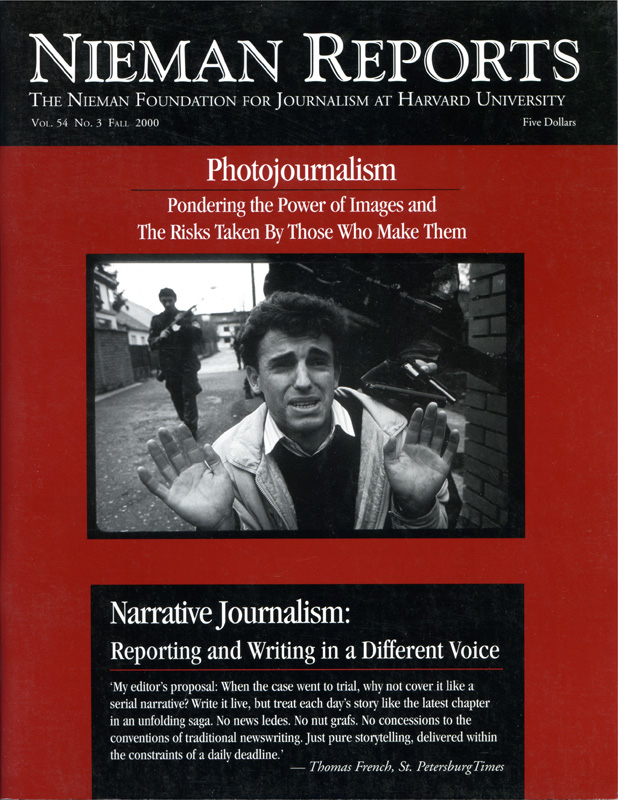The death penalty is under the journalistic microscope. Scrutiny of prosecutions and court procedures, along with new testing of DNA evidence, is illuminating ways in which the legal system—from the cops to the courts—does not always arrive at a just conclusion. John Painter (’77 NF), a court and public safety reporter for The Oregonian, peers inside the pages of a recently published book, “Actual Innocence,” to shed light on some critical questions crime reporters sometimes forget to ask. He provides vivid examples of how misconduct by police and prosecutors resulted in incorrect verdicts and shows how crime reporters can avoid writing “the easy story” which might be profoundly wrong.
Chicago Tribune legal affairs writer Ken Armstrong (’01 NF) asked some of the critical questions raised in Painter’s review. He invites us to follow him and fellow reporter Steve Mills as they extensively probed the subject of wrongful convictions in three series that the paper published between January 1999 and June 2000. Their investigative articles focused on misconduct by prosecutors, the death penalty in Illinois, and the death penalty in Texas. Illinois Governor George Ryan cited findings from the Tribune’s coverage as he declared a moratorium on executions two months after their articles were published.
Michael Gartner, who won the 1997 Pulitzer for Editorial Writing, reviews “The Hunting of the President,” and finds the book’s spotlight focused on questionable actions of the Washington press corps. “It is a depressing book,” he writes. “For news people, it is especially depressing.” Robert Manning (’46 NF), former editor of The Atlantic Monthly, reflects on “An American Album,” a collection of 150 years of articles that appeared in Harper’s, with thoughts about why Harper’s and The Atlantic Monthly have survived during a time when so many other magazines have vanished. University of North Carolina at Chapel Hill journalism professor Philip Meyer (’67 NF) introduces us to the views of various contributors who tackled the question of “What’s Fair?” in a book of the same name, edited by Nieman Curator Robert Giles and Robert W. Snyder. “If truth is whatever works for you,” Meyer concludes, “there is no need for journalism.”
Journalist and author Anne Driscoll writes about why she refused to sign a new contract with The Boston Globe that required freelance writers to surrender their control of and rights to compensation for reuse of their work, including use on the newspaper’s Web site. How emerging ways of transmitting news will affect the ownership rights of those who produce it is an issue that will inhabit the lives of 21st century journalists.


